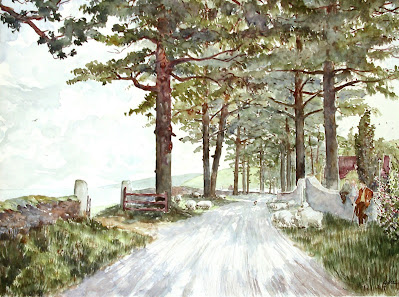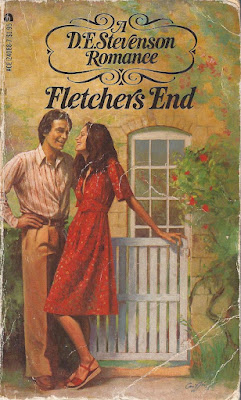A month ago I posted a piece in which, using the metaphor of fields and fence lines, I compared my talent to a field or pasture, and its limits as my fence lines. Fence lines that I could look over to see what was likely beyond my talent, and fences that I could, perhaps, climb over, if I cared to.
I believe I concluded that some of those fence lines were a matter of personal taste, while others defined the natural limits of my personality and intelligence. Let's explore more of those fence lines.
This installment talks about one fence line, at least, that pretty much insures I'm never going to write a book that will become a classic.
Great books, classics that last the test of time, usually have certain characteristics. Not all have all these characteristics, but have most do. When I look around the pasture of my talent, I don't see many/any of those characteristics. They are not in my skill set. I have to look over the fences to find them. Still let's have a look over the fence to see what I lack in this regard.
One of the adjacent pastures that, I think, would need be enclosed in the fences of one's talent in order to write classic great stories is that of intellectualism. One needs to think in terms of, and have a passion, for "themes."
When I hear people talking about the truly great books one of its characteristic is often that the book offers deep themes that make them think, and/or challenge the way they think. There are even readers who, finding a story itself unpleasant to read, persist in doing so because they feel it's good for them. It offers lessons to be learned. They hold their nose and swallow their medicine. And pleasant or unpleasant they remember those books because of the thought-provoking themes linger long after they finish reading them. Books, when they click with a reader for whatever reason, stick in their minds long after they are read.
Alas, this type of story is on the far side of the fence for me. I'm not a great and deep thinker. I'd like to think that's a choice, but I'm not the one to say so. I just know that I am quite content not to waste time and words pondering questions with no answers, though I know is amuses many people. I am quite content to take life as it appears. I'm not curious enough to want to peek behind the curtain.
It is the same when it comes to social issues. I've come to understand that everything takes time, usually much more time than we'd like to think it should take. Change happens at its own pace. Still, when I look at the big picture, the history of mankind is going in the right direction (left) slowly, but surely, even if it moves with all the speed of a glacier. Knowing this, I don't get too deeply wrapped up in all the fleeting issues of the day. Headlines, if that, are enough. Oh, and I'm not a very detail orientated person.
This mild mannered indifference extends to the study of humanity itself. I have no interest in human phycology and so I have nothing useful to say about us. I am quite content to take us as we appear on the surface. Basically, people are strange, and having said that, I'm content to leave there.
My explanation, or excuse, for being content with my limits, content to stay in my pasture on these issues is that I'm an old and simple philosophical Taoist. I'm a "The Way That is Spoken is not The Way," sort of person. Instead of living by words, I live largely intuitively. I am content to "know" what I know without the need to put that knowledge into words, into a set of "facts." As I said above, I'm content to live with mysteries. And I don't do details.
So, in summery, I have no interest in exploring Western Philosophies, no interest in exploring current world or social affairs, or human psychology, no interest in exploring humanity; all great themes explored by great literature. Nor do I have any special knowledge or brilliant insights to offer readers; i.e. things people claim to find in great literature, as well as in any book that people remember after they close that book.
Given my lack of knowledge and interest in these subjects, I don't think I could leap this fence, write a heavy book, even if I wanted to. Which I don't. As a result, you'll find none - or little - of those things in my books; by choice as well as lack of talent. So, "Deep and/or Universal Themes" is unchecked in the checklist of the type of stories I can write.
Stay tuned for more unchecked boxes. There are more. Many more.

















